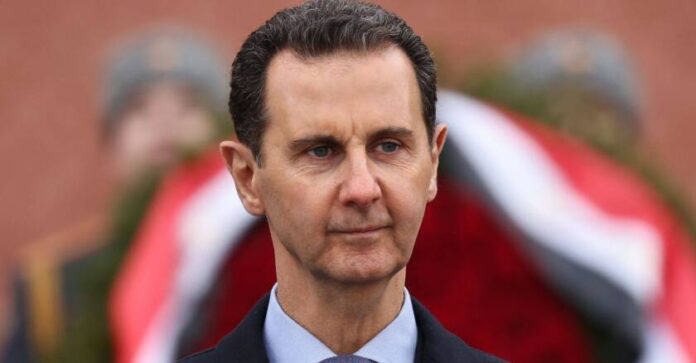The drama of Bashar al-Assad’s escape from Syria reads like a season finale of a political thriller. It’s got everything: a once-untouchable dictator, shadowy Islamist rebels, world powers throwing shade, and even a prison break. Let’s unpack the chaos, clarify the characters, and have some fun while we’re at it.
A Dynasty Built on Iron Fists and Nepotism
To understand why Bashar al-Assad’s fall is a big deal, we need to start with his dad, Hafez al-Assad. Picture a 1970s Middle East, where coups were as common as bad disco. Hafez, a ruthless military man, seized control of Syria in 1970 and ruled it like a mafia don. He suppressed dissent, built alliances with Iran and the Soviet Union (later Russia), and positioned Syria as a power broker in the region. His motto might as well have been, “If you want to criticize me, do it quietly—or not at all.”
When Hafez died in 2000, Syria’s leadership wasn’t supposed to go to Bashar, the family nerd studying ophthalmology in London. Nope, the heir apparent was Bassel, the family’s golden boy—a military officer groomed to lead. But life had other plans. Bassel died in a car crash in 1994, leaving the unassuming Bashar to abandon his eye charts and step into his father’s very big (and very authoritarian) shoes.
Bashar’s Rise (and Immediate Fall into Villainy)
Bashar came into power at 35, a fresh-faced leader who promised modernization and reform. Spoiler: that didn’t happen. Instead, Bashar learned that repression works wonders for staying in power. Over the next two decades, he:
- Turned Syria into a police state.
- Played sectarian politics, pitting religious and ethnic groups against one another.
- Gassed his own citizens (yes, gassed), earning him the title “Chemical Assad.”
- Turned Syria into a narco-state, with Captagon (an amphetamine) flowing like cola at a frat party.
The Arab Spring Turns into Syria’s Winter
In 2011, the Arab Spring was in full swing, with dictators toppling left and right. Syrians, tired of Assad’s brutality, joined the movement. But instead of stepping down gracefully, Bashar doubled down with tanks, bombs, and mass arrests. The resulting civil war spiraled into a multi-sided nightmare featuring:
- Assad’s Regime: Backed by Iran, Hezbollah, and Russia, Assad clung to power.
- Rebels: Initially democratic, they fractured into a mix of moderates and extremists.
- ISIS: Ever the opportunists, they declared a caliphate in the chaos.
- Foreign Powers: The U.S., Turkey, and Israel jumped in, each pursuing their own agendas.

Why Putin Liked Assad
Enter Vladimir Putin, the real-life Bond villain. Assad was a perfect ally for Putin: he let Russia keep military bases in Syria, served as a thorn in America’s side, and gave Moscow a foothold in the Middle East. In return, Russia propped up Assad with airstrikes and weapons. It wasn’t friendship—it was business.
The Lightning Rebellion
Fast forward to late November 2024. With Russia bogged down in Ukraine and Iran distracted by its conflict with Israel, Assad’s backers were too busy to save him. This created an opening for the rebels, led by Abu Mohammad al-Jolani’s Hayat Tahrir al-Sham (HTS). In just two weeks, they swept through Syria, taking Aleppo, Hama, and Homs before rolling into Damascus.
Jolani’s HTS is a rebranded offshoot of al-Qaida. Once a hardline jihadist, Jolani now claims he’s all about pluralism and inclusivity—think of him as a dictator-in-waiting with a PR makeover. He’s traded his combat fatigues for tailored suits, but skeptics wonder if the leopard has really changed its spots.
Assad’s Great Escape
As rebels stormed Damascus, Assad slipped away like a villain in a Bond movie. Reports suggest he fled with his family to Moscow, where Putin granted him asylum. Why? Because even Putin knows it’s bad PR to let your ally get lynched on live TV. Assad left behind a ransacked palace, angry mobs, and a history of atrocities.
Jolani’s Big Moment
Jolani’s victory speech at the Umayyad Mosque was a theatrical display. Flanked by fighters, he declared Assad’s fall “a victory for the Islamic nation” while making overtures to Syria’s diverse population. But actions speak louder than words, and Jolani’s history makes it hard to believe he’s the Middle East’s answer to George Washington.
What About ISIS?
You might be wondering, “Where’s ISIS in all this?” Good question. While they’ve been weakened, ISIS still lurks in Syria’s shadows, waiting for chaos to give them another chance. This is why President Joe Biden has been bombing ISIS targets even as Assad falls. Biden doesn’t want Syria to become a terrorist Disneyland.
Biden vs. Trump: Different Takes
President Biden sees Assad’s fall as a “historic opportunity” but also a “moment of risk.” His strategy? Bomb ISIS, stabilize Syria, and keep an eye on Jolani. Meanwhile, President-elect Donald Trump is taking a hands-off approach, calling on world leaders to negotiate peace and stop the madness. Trump’s take is less about Syria and more about calling Putin weak for ditching Assad.
What’s Next for Syria?
- Power Struggles: With Assad gone, rebels must govern a country devastated by war. Jolani promises pluralism, but trust issues abound.
- International Meddling: The U.S., Russia, Turkey, and Iran will jostle for influence.
- Reconstruction: Rebuilding Syria will take billions and years of effort. Who foots the bill is anyone’s guess.
- Terrorism Risks: ISIS isn’t dead, and Jolani’s HTS has skeletons in its closet.
Conclusion: Syria’s New Chapter
Bashar al-Assad’s reign of terror is over, but Syria’s future remains uncertain. Jolani has the spotlight, but the road ahead is fraught with challenges. Whether this marks the start of a democratic Syria or just another chapter of authoritarian rule depends on the rebels’ actions and the world’s response. One thing’s for sure: Assad’s fall is a victory for Syrians who suffered under his brutal regime, even if the next act of this saga is filled with uncertainty.
Sources
- Fox News Staff, “Trump responds after rebels overtake Syria, ousting longtime dictator: ‘Assad is gone,’” Fox News, December 8, 2024.
- Nic Robertson, “Syrian rebel leader’s victory speech holds a message for Iran – and for Trump and Israel too,” CNN, December 8, 2024.
- Josh Meyer, “From eye doctor to brutal dictator: The rise (and fall) of Syria’s Bashar al-Assad,” USA Today, December 9, 2024.
- Stephen Quillen and Umut Uras, “Syria war live news: Al-Assad in Russia; Search for detainees at Sednaya,” Al Jazeera, December 8, 2024.
- Betsy Klein et al., “Biden offers a blueprint for US support in Syria, announces airstrikes against ISIS targets,” CNN, December 8, 2024.
- Kareem Chehayeb, “Who is Abu Mohammed al-Golani, the leader of the insurgency that toppled Syria’s Assad?” AP News, December 8, 2024.
- Alex Oliveira, “Syria’s Bashar al-Assad and family in Moscow after Russia granted them asylum,” New York Post, December 8, 2024.
Disclaimer: This article is an opinion piece providing analysis, commentary, and educational insight based on reliable sources. It reflects the author’s views and not those of the cited organizations. For official updates, refer to the sources listed above.




